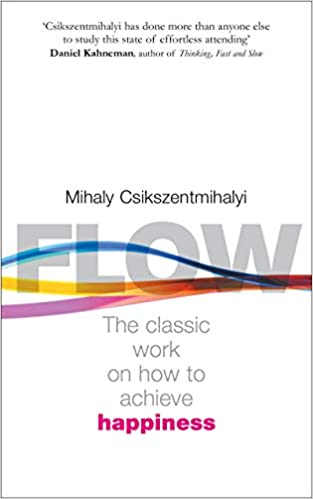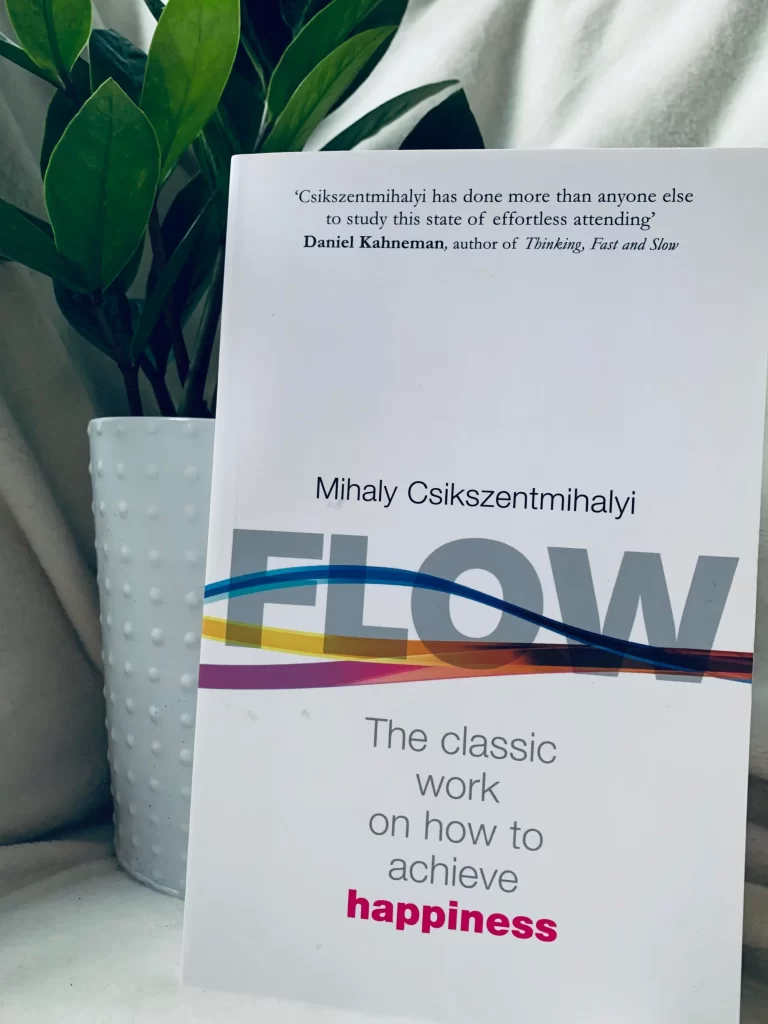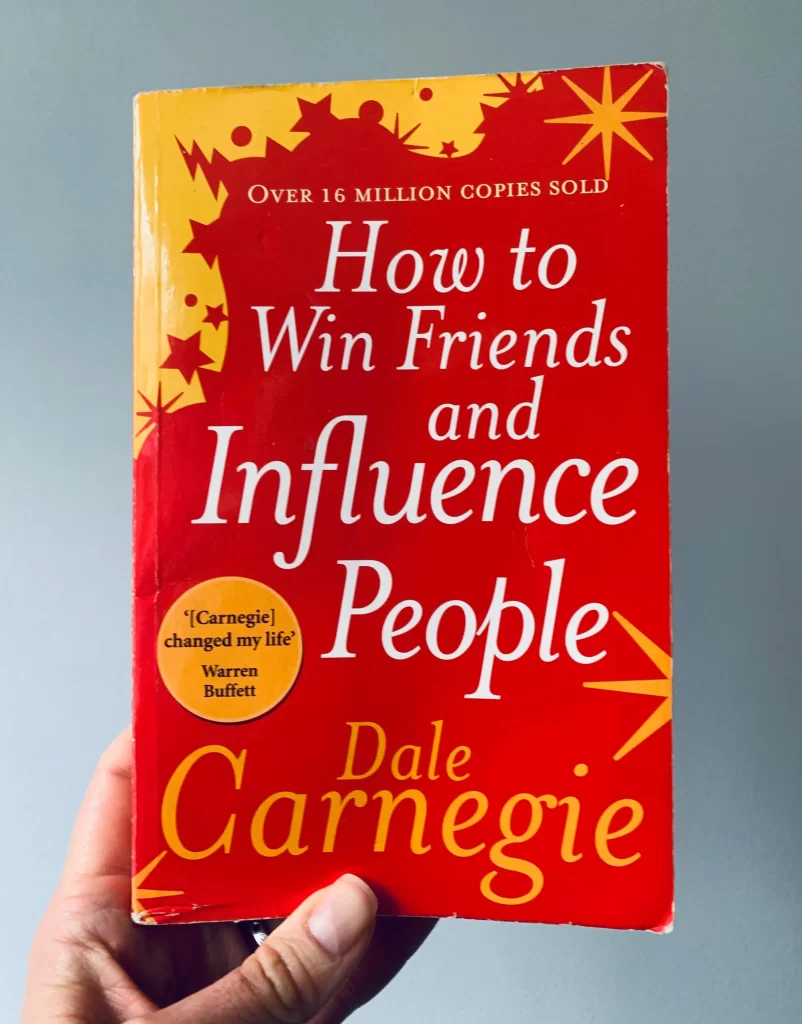 Flow. Book Summary
Flow. Book Summary
The classic work on how to achieve happiness
Mihaly Csikszentmihalyi
Ebury Digital; New Ed edition (15 Nov. 2013)
About the author:
Mihaly Csikszentmihalyi (pronounce /ˈmiːhaɪ ˈtʃiːksɛntˈmiːhaɪ/) is one of the world’s leading researchers in positive psychology. He is the Distinguished Professor of Psychology and Management at Claremont Graduate University. He is the former head of the department of psychology at the University of Chicago and the department of sociology and anthropology at Lake Forest College. He recognised and named the psychological concept of flow, a highly focused mental state conducive to productivity.
The book in 3 sentences:
In this book, Mihaly Csikszentmihalyi summarizes his decades of research on the positive aspects of human experience – joy, creativity, the process of total involvement in life, which he calls flow. It’s an incredible book that powerfully articulates the science behind how to control our consciousness to more consistently get ourselves into the optimal state of experience known as flow, and, as a result, enjoy our lives more.
Key ideas from the book:
Happiness – revisited
“What I “discovered” was that happiness is not something that happens. It is not the result of a good fortune or random chance. It is not something that money can buy or power command. It does not depend on outside events, but rather, on how we interpret them. Happiness, in fact, is a condition that must be prepared for, cultivated, and defended privately by each person. People who learn to control inner experience will be able to determine the quality of their lives, which is as close as any of us can come to being happy”
To be happy and enjoy a meaningful life, you need to take control of your consciousness. You have to develop an ability to find enjoyment and purpose regardless of external circumstances.
The book is all about how we can organize the contents of our consciousness to be in a state of “flow” consistently. And therefore, how to enjoy every moment of our lives.
Attention as psychic energy
“The mark of a person who is in control of consciousness is the ability to focus attention at will, to be oblivious to distractions, to concentrate as long as it takes to achieve a goal, and not longer. And the person who can do this usually enjoys the normal course of everyday life.”
Csikszentmihalyi describes our attention as “psychic energy”. He highlights that a) those of us who can control it tend to enjoy life more; and, b) we have a limited amount of stimuli we can attend to in any given moment/minute/hour/day and, therefore, a lifetime.
The quality of your attention and where you choose to put it essentially dictates the quality of your life.
Flow concept and flow activities:
“A person can make himself happy, or miserable, regardless of what is actually happening “outside,” just by changing the contents of consciousness. We all know individuals who can transform hopeless situations into challenges to be overcome, just through the force of their personalities. This ability to persevere despite obstacles and setbacks is the quality people most admire in others, and justly so; it is probably the most important trait not only for succeeding in life, but for enjoying it as well.”
If you want to control your consciousness, you need to learn how to focus attention at will, to be oblivious to distractions, to concentrate for as long as it takes to achieve a goal, and not longer. Then you will flow.
Flow is the state of mind where you’re completely absorbed by what you’re doing. The time seems to pass really fast, and you are so concentrated, that don’t even notice what’s going on around you.
According to research, activities that pose a challenge roughly equal to your skill level will allow you to experience flow, and become a lot happier.
In other words, the opportunities for action perceived by the individual are equal to his or her capabilities.
“Enjoyment appears at the boundary between boredom and anxiety when the challenges are just balanced with the person’s capacity to act.”
According to the research, every flow activity provides a sense of discovery, a creative feeling of transporting the person into a new reality:
“It pushed the person to higher levels of performance, and led to previously undreamed-of states of consciousness. In short, it transformed the self by making it more complex. In this growth of the self lies the key to flow activities.”
Flow in family and relationship:
“When a family has a common purpose and open channels of communication, when it provides gradually expanding opportunities for action in a setting of trust, then life in it becomes an enjoyable flow activity.”
A family has to have a deep intrinsic goal for its existence. Positive goals are necessary to focus the attention of parents and children on everyday tasks. At the same time, these goals have to result in interactions that will help increase the complexity of its members. Csikszentmihalyi suggests that the family must be both differentiated and integrated:
“Differentiation means that each person is encouraged to develop his or her unique traits, maximize personal skills, set individual goals. Integration, in contrast, guarantees that what happens to one person will affect all others.”
In addition to long-term goals, it is important to have a constant supply of short-term objectives (e.g. buying a new car, going on a picnic, planning for a vacation, or playing a game together on the weekend). What is important is that the common goals should reflect individual members’ goals as much as possible. Don’t forget about balancing skills and challenges and clear feedback. ☺
The research proves that how parents interact with a child will have a lasting effect on the kind of person that child grows up to be.
Children need to know what their parents expect from them (goals and immediate feedback), they are interested in them and in what they are doing at present (don’t be busy worrying about whether they’ll get into a good university or obtain a well-paid job). Remember Wise parenting (Grit)? That’s the way to create flow in relationships with your kids. At the same time, families should provide a sense of acceptance, control, and self-confidence to the children – that’s when family members trust one another and feel totally accepted.
“The situation is much easier when the parents themselves are involved in understandable and complex activities at home. If the parents enjoy playing music, cooking, reading, gardening, carpentry, or fixing engines in the garage, then it is more likely that their children will find similar activities challenging, and invest enough attention in them to begin enjoy doing something that will help them grow.”
Again, parents are the role models for their kids!
It is also important for parents to help their kids to develop an autotelic personality. Parents need to help their children to develop a deep interest in the world around them and a personally meaningful sense of what one’s experience is all about.
Parenting is also essential to build a strong foundation for discovering a life purpose for their kids:
“People who as adults develop coherent life themes often recall that when they were very young, their parents told them stories and read from books. When told by a loving adult whom one trusts, fairy tales, biblical stories, heroic historical deeds, and poignant family events are often the first intimations of meaningful order a person gleans from the experience of the past.“
Csikszentmihalyi also shares his insights on how we can achieve flow in sex and relationship:
“To be enjoyable, a relationship must become more complex. To become more complex, the partners must discover new potentialities in themselves and in each other. To discover these, they must invest attention in each other—so that they can learn what thoughts and feelings, what dreams reside in their partner’s mind. This, in itself is a never-ending process, a lifetime’s task.”
Flow at work, leisure and solitude:
“Thus we have a paradoxical situation: On the job people feel skillful and challenged, and therefore feel more happy, strong, creative, and satisfied. In their free time people feel that there is generally not much to do and their skills are not being used, and therefore they tend to feel more sad, weak, dull, and dissatisfied. Yet they would like to work less and spend more time in leisure.”
Probably, that’s because we have a poor idea of what actually makes us feel happy.
The key here: Let’s remember what brings us into flow and enjoy the opportunities we naturally have at work to get into flow while consciously creating more opportunities to do so in our leisure time! Fill your free time with activities that require concentration, that increase skills, that lead to the development of the self. Watching TV is not the best option as you can guess (it just provides passive order for our consciousness).
Social science research concluded that people claim to be most happy with friends and family, or just in the company of others. But it is also essential to learn how to enjoy our alone time, our solitude.
“A person who rarely gets bored, who does not constantly need a favorable external environment to enjoy the moment, has passed the test for having achieved a creative life. Learning to use time alone, instead of escaping from it, is especially important in our early years. Teenagers who can’t bear solitude disqualify themselves from later carrying out adult tasks that require serious mental preparation… And what is even more important, they never learn how to enjoy living. They do not acquire the habit of finding challenges that bring out hidden potentials for growth.”
Again, when you stay in solitude for some time, remember about flow – don’t just dive into your smartphone, but use this time to develop yourself. And it’s important to teach our kids to enjoy their solitude as well (give them space ☺).
Cheating chaos and coping with stress
For every person, the chances of only good things happening are extremely slim. We will all experience stress at different levels (and maybe even life-changing adversities). What we should focus on is developing positive stress coping strategies (mature defence or transformational coping), courage, resilience and perseverance.
“If we do develop such positive strategies, most negative events can be at least neutralized, and possibly even used as challenges that will help make the self stronger and more complex.”
What is important, transformational skills usually develop by late adolescence. Young children and early teens still depend largely on a supportive social network (especially family) to buffer them against things that go wrong. That’s why being a supportive parent is so important.
Autotelic self:
“To create harmony in whatever one does is the last task that the flow theory presents to those who wish to attain optimal experience; it is a task that involves transforming the entirety of life into a single flow activity, with unified goals that provide constant purpose.”
Our ability to have an optimal experience in every aspect of our lives greatly depends on whether we are “autotelic self”.
“The term literally means “a self that has self-contained goals,” and it reflects the idea that such an individual has relatively few goals that do not originate from within the self.”
The rules for developing such a self are simple, and they derive directly from the flow model:
- Setting goals. To be able to experience flow, we must have clear goals to strive for. And they have to be a) intrinsic, b) challenging enough, c) we can easily gain feedback. This promotes the feeling of ownership of decisions and strong dedication to the goals. The actions are internally controlled.
- Becoming immersed in the activity. A person with an autotelic personality grows deeply involved with whatever he is doing. And involvement is greatly facilitated by our ability to concentrate.
- Paying attention to what is happening. We need to pay attention to an interaction instead of worrying about the self. The autotelic individual grows beyond the limits of individuality by investing psychic energy in a system in which she is included.
- Learning to enjoy the immediate experience. “Being in control of the mind means that literally, anything that happens can be a source of joy. Feeling a breeze on a hot day, seeing a cloud reflected on the glass facade of a high-rise, working on a business deal, watching a child play with a puppy, drinking a glass of water can all be felt as deeply satisfying experiences that enrich one’s life.” Enjoy every single moment.
Flow and Life Purpose
“To create harmony in whatever one does is the last task that the flow theory presents to those who wish to attain optimal experience; it is a task that involves transforming the entirety of life into a single flow activity, with unified goals that provide constant purpose.”
If we want to obtain an optimal experience in every aspect of our life, we need to discover our meaning of life, or purpose (that reminds of Japanese Ikigai concept). Then all our smaller goals will be connected to it, we will invest our energy in developing skills to reach that primary goal, then actions and feelings will be in harmony, and the separate parts of life will fit together. Again, goals must be authentic and intrinsic.
Action steps for you:
- Think about how you can be more autotelic self?
- Learn how to enjoy solitude — think about the flow activities you can do while staying alone (or, e.g. in a queue or traffic jam)
- Think of how you can turn most of your daily activities into flow? And start practicing 🙂
Favourite quotes from the book:









